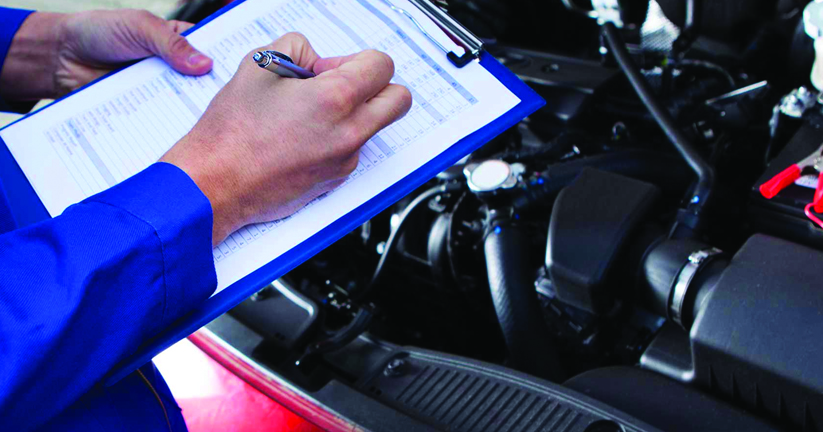
When your BMW’s odometer creeps towards the triple digits, it’s common to feel a sense of pride mixed with just a bit of trepidation. After all, owning a high-mileage luxury vehicle could get expensive. But the truth is, there are many Bimmers on the road with well over 100,000 miles. In fact, some do fine for up to 250,000 miles or more.
If you want to keep yours running smoothly, remember that the secret is in the service. With careful maintenance, you can enjoy many more years of reliable performance. Here’s a look at some of the repairs and replacements you’ll need to add to your maintenance schedule after your BMW hits 100k.
1. Fluid Replacement
You may have heard that some BMWs fluids have a “lifetime fill,” but it’s also important to note that BMW generally considers 100k miles to be a “lifetime.” With that in mind, it’s important to keep an eye on all of your vehicle’s fluids, especially as it gets older.
Engine Oil
There was a time when BMW recommended oil changes once every 15,000 miles or 12 months. However, this is really only appropriate for vehicles with 50,000 or fewer miles. In 2016, BMW revised its recommendation down to 10,000 miles or 12 months. As your vehicle ages, it’s a good idea to stick with this frequency.
Transmission Fluid
The official recommendation is to replace the transmission fluid on an automatic BMW every 50,000 miles or eight years. Manual transmission fluid should be changed every 60,000 miles.
Differential Fluid
Differential fluid should be changed at the same time as your transmission fluid.
2. Brakes
The recommended frequency for brake changes depends on your driving habits and how often you drive. Generally, you should plan to replace your brake pads every 25,000 to 65,000 miles. If you’re not sure, ask your BMW repair technician for a more accurate recommendation. Then, be sure to follow it. Worn brake pads can cause damage to your calipers and rotors, which will result in an expensive repair.
3. Air Filters
Clogged air filters can cause an array of problems including weakened acceleration, decreased throttle response, and increased engine wear. As your BMW gets older, it’s even more important to keep up with air filter changes so you can avoid unnecessary problems.
Engine Air Filters
Make sure to change your engine air filters every 30,000 miles. Otherwise, they can get clogged with dirt, which will reduce airflow into your engine. This can cause both your horsepower and your fuel efficiency to decrease.
Fuel Filter
To ensure uninterrupted fuel flow into your BMW’s engine, be sure to replace the fuel filter every 60,000 miles. Otherwise, a plugged filter could damage your fuel pump and lead to problems with starting your vehicle.
Interior Air Filters
If your cabin air filters get dirty, they can create an unpleasant smell inside your BMW. To avoid this, plan to change them about every 20,000 miles or every two years.
4. Spark Plugs
Choosing the right type of spark plugs and replacement interval is critical to ensuring your engine operates as it should. Most standard BMWs can benefit from having their spark plugs changed every 45,000 to 60,000 miles.
5. Belts
A vehicle’s belts wear out after time, making it particularly important to keep up with them after your BMW hits 100k miles. When inspecting your belts, look for signs of cracking, uneven wear, missing ribbing, or general brittleness. Your BMW mechanic may recommend changing your belts proactively to avoid potential problems.
6. Timing Belt and Water Pump
Damage caused by a broken timing belt can be extremely costly, making this one of the most important BMW 100k mile maintenance tasks. Statistically, as your vehicle ages, there’s a good chance this will eventually break, especially if you regularly drive in harsh conditions or extremely hot or cold weather.
While you’re having your timing belt replaced, you might want to replace your water pump as well.
7. Tires
Generally, BMW tires last about 25,000 to 30,000 miles if you follow the recommended tire rotation and alignment schedule. On a 2WD BMW, you’ll want to rotate your tires every 5,000 to 7,500 miles. And when you change your tires, it’s best to change all four at once.
BMW Maintenance is Money Well Spent
While keeping up with your BMW maintenance isn’t always cheap, it’s money well spent. This is especially true when you’re driving one that has triple-digit mileage.
When you’re ready to bring your BMW in for maintenance services, be sure to visit a trusted mechanic who is well-versed in caring for high-mileage BMWs. The dealership-trained, BMW-certified team at The Haus has over 25 years of combined experience.
We will take excellent care of your high-mileage BMW so you can keep driving it for many years to come. Contact us today to schedule your VIP appointment!
